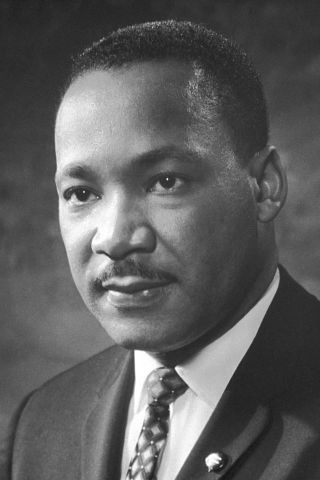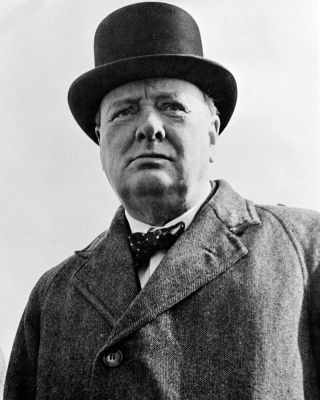Bipolar Disorder
When Hearing Voices Is Not a Symptom of Mental Illness
Distinguishing helpful inner voices from hallucinations.
Updated April 6, 2024 Reviewed by Tyler Woods
Key points
- Not everyone who hears voices is mentally ill.
- Philosophers, Nobel Prize winners, and several influential psychiatrists have described hearing voices.
- It is important to distinguish pathological hallucinations from helpful inner voices.

Hearing voices that others do not hear is often considered a symptom of mental illness. The American Psychological Association defines an auditory hallucination as “the perception of sound in the absence of an auditory stimulus.” When these hallucinations involve voices, they are called verbal hallucinations.
The word "hallucination" derives from the Latin hallucinatio, meaning "a wandering of the mind." This word first appeared in a 16th-century book titled De Humani Corporis Fabrica, and its earliest English usage occurred In 1572 when the Swiss writer Johann Lavater applied the term to strange noises, omens, and apparitions. Originally, this appellation was applied only when referring to abnormal phenomena, but with time it became associated with any unshared experience and with mental illness.
What causes auditory hallucinations?
Today, many people associate hearing voices with mental illness, and it is easy to understand why. Approximately 75 percent of people diagnosed with schizophrenia hear verbal hallucinations. These voices can also be a symptom of post-traumatic stress disorder, bipolar disorder, depression, and anxiety.
The mechanism by which verbal hallucinations manifest is unknown, but possible explanations include biochemical, cognitive, and neurobiological processes.
Not everyone who hears voices is mentally ill
Studies performed at Murray State University and in the Netherlands found many people who hear voices are not mentally ill.

Furthermore, countless mentally healthy people hear voices. The Greek philosopher Socrates heard a voice throughout his life that warned him not to do certain things that were not to his advantage. Socrates called his voice to daimonion or “the divine.”
Once, while walking with a group of friends, Socrates’s daimon advised him to turn around and take a different road. He called to his friends who had gone ahead, but they ignored him and continued their journey. As his friends proceeded, they were knocked down by a herd of pigs while Socrates remained unscathed.

Nobel Peace Prize winner Martin Luther King, Jr. heard a voice he believed originated from God. During the Montgomery bus boycott, King feared for his life after he received numerous death threats. Despite the danger, King remained calm. He attributed his inner peace to a voice that reassured him by saying, “Lo, I will be with you always.”
Numerous psychiatrists heard voices, including Sigmund Freud, Elisabeth Kübler-Ross, M. Scott Peck, and Carl Jung.
In Psychopathology of Everyday Life, Freud reported, "During the days when I was living alone in a foreign city—I was a young man at the time—I quite often heard my name suddenly called by an unmistakable and beloved voice."
Thanatologist and psychiatrist Kübler-Ross described an experience with a helpful voice. She had just made the difficult decision to leave her post at the University of Chicago where she was teaching a seminar on death and dying when she encountered an apparition of a former patient, a woman who had died almost a year earlier. This woman said, "Dr. Ross, I had to come back for two reasons. One, to thank you... But the other reason I had to come back is that you cannot stop this work on death and dying, not yet."
In his book The Road Less Traveled, Peck recounted his experience with an inner voice. During adolescence, Peck was struggling to decide whether to return to the boarding school he attended previously, and where he had been miserable, or transfer to a different school. His parents pressured him to return to his former school, even threatening to admit him to a psychiatric hospital if he refused. Then, he experienced the following:
At the moment of my greatest despair, from my unconscious there came a sequence of words, like a strange disembodied oracle from a voice that was not mine: "The only real security in life lies in relishing life's insecurity.”
Peck told his parents to go ahead and send him to the hospital because he was not going back to his old school.
In his autobiography, Jung described hearing an inner voice throughout his life. He even named his inner discussant, whom he referred to as Philemon. "Philemon and other figures of my fantasies brought home to me the crucial insight that there are things in the psyche which I do not produce, but which produce themselves and have their own life. Philemon represented a force which was not myself…I observed clearly that it was he who spoke, not I."

Others who described hearing voices include the founder of Alcoholics Anonymous, Bill W., the Oglala Sioux medicine man Black Elk, the award-winning scientist George Washington Carver, Joan of Arc, General George Patton, and U.K. Prime Minister Winston Churchill. During World War II, Churchill received life-saving advice from his inner voice.
What are the differences between auditory hallucinations and helpful inner voices?
How can we distinguish the pathological hallucinations heard by people with mental illness from the helpful inner voices that occur in mentally healthy individuals? Distinguishing characteristics include the nature of the voices, their content, and their effects on those who hear them.
For example, verbal hallucinations tend to speak in single words, short phrases, or brief sentences, whereas helpful inner voices generally speak in complete sentences or extended discourses. Also, verbal hallucinations tend to be judgmental, critical, or condemning, but helpful inner voices are often supportive and helpful. Additionally, verbal hallucinations seem real only to the person who hears them, but helpful inner voices can provide benefits that extend to others as well. Verbal hallucinations tend to interfere with personal, interpersonal, and societal functioning, whereas helpful inner voices generally enhance functioning in these same areas. Finally, verbal hallucinations are often associated with brain dysfunction, whereas helpful inner voices are not.
Why labels matter
Learning to recognize helpful inner voices can help us avoid pathologizing these beneficial experiences and the people who hear them. Incorrectly judging helpful inner voices to be hallucinations and mislabeling the people who hear them as mentally ill can result in stigmatization and the inappropriate administration of antipsychotic medications. Furthermore, the beneficial information received from these voices may be discounted or ignored. Learning to discern the difference between pathological and helpful inner voices can reduce the inappropriate application of psychopathological labels and help us access beneficial information.
References
Auditory hallucination. 2024. American Psychological Association. https://dictionary.apa.org/auditory-hallucination.
Ayer F. Before the Colors Fade: A Portrait of a Soldier: George S. Patton, Jr. Boston: Houghton, Mifflin, 1964.
Badcock JC and Hugdahl K. "Cognitive mechanisms of auditory verbal hallucinations in psychotic and non-psychotic groups." Neuroscience & Biobehavioral Reviews 36.1 (2012): 431-438.
Barrett TR. and Etheridge JB. "Verbal hallucinations in normals, I: People who hear ‘voices’." Applied cognitive psychology 6.5 (1992): 379-387.
Clark, Glenn. The Man Who Talks with the Flowers. Simon and Schuster, 2013.
Clifford G et al. "Prevalence of auditory pseudohallucinations in adult survivors of physical and sexual trauma with chronic post-traumatic stress disorder (PTSD)." Behaviour research and therapy 111 (2018): 113-118.
Fishman, Jack. My Darling Clementine. Avon 1963.
Freud, Sigmund. Psychopathology of Everyday Life. WW Norton & Company, 1989.
Johnson, Fred H. The Anatomy of Hallucinations. Nelson-Hall, 1978
Jung, Carl G. Memories, Dreams, Reflections. Vol. 268. Vintage, 1989.
King, Martin Luther. "The Wisdom of Martin Luther King, Jr." Meridian, 1993.
Kübler-Ross, Elisabeth. Death. Simon and Schuster, 1975.
Neihardt, John G. Black Elk Speaks: The complete edition. U of Nebraska Press, 2014.
Noyes, A & Kolb L. Modern Clinical Psychiatry. Saunders, 1963.
Peck, M. Scott. The Road Less Traveled and Beyond: Spiritual Growth in an Age of Anxiety. Simon and Schuster, 1998.
Ratcliffe M and Wilkinson S. "How anxiety induces verbal hallucinations." Consciousness and cognition 39 (2016): 48-58.
Richter D et al. “The impact of biochemistry on the problem of schizophrenia.” Schizophrenia Today (1976): 71-83.
Sackville-West V. Saint Joan of Arc. Doubleday, 1964.
Slade, Peter D., and Richard P. Bentall. Sensory Deception: A Scientific Analysis of Hallucination. Johns Hopkins University Press, 1988.
Thomas P et al. "Correlates of hallucinations in schizophrenia: A cross‐cultural evaluation." Schizophrenia Research 92.1-3 (2007): 41-49.
Uebersax, J. “Socrates and the Daimonion - The Swine Incident.” (2021). Available at: https://www.john-uebersax.com/plato/myths/socrates.htm.
What are auditory hallucinations? 2024. Cleveland Clinic. https://my.clevelandclinic.org/health/symptoms/23233-auditory-hallucinations.
William, W. "The society of Alcoholics Anonymous." American Journal of Psychiatry 151.6 (1994): 259-62.




